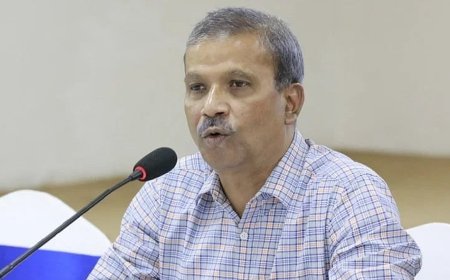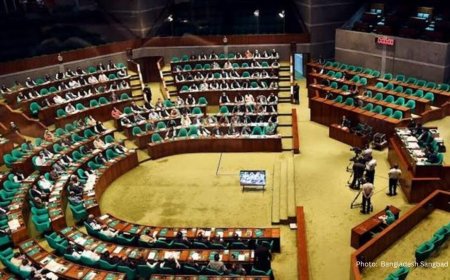Eliminate Political Interference in the Banking Sector
Eliminate Political Interference in the Banking Sector

Bangladesh's Banking Sector in Crisis: Governance, Financial Health, and the Path Forward
The banking sector in Bangladesh is facing unprecedented challenges, marked by record-high non-performing loans (NPLs), severe liquidity issues in stressed banks, trade-based money laundering, weak corporate governance, provisioning shortfalls, and a foreign currency crisis. These issues stem from over a decade of governance failures in the banking industry.
Since its inception, Bangladesh Bank has issued licenses to 62 scheduled banks (including state-owned, private, foreign, and specialized banks) and 34 non-bank financial institutions (NBFIs). However, the sustainability of so many banks within the country’s economic framework has been called into question. In comparison to other Asian nations, Bangladesh has an abnormally high number of banks relative to its GDP size. For instance, while Bangladesh had 62 banks for a GDP of $437.42 billion in 2023, countries like Malaysia, Indonesia, and India, with larger economies, operate fewer banks.
Political Influence and Banking Licenses
Political interference in issuing banking licenses has severely disrupted the sector. Successive governments have granted bank licenses without adequate consideration of sustainability. For example, the Awami League approved 26 private banks during its tenure, while the BNP authorized eight. Licensing decisions often favored politically connected individuals who assumed board positions and influenced bank operations through state mechanisms. This has led to conflicts of interest, undermined governance, and compromised the integrity of bank management.
Board interference in management decisions has further eroded professional governance, driving many banking professionals to leave the industry prematurely over the last 15 years. The absence of robust demutualization has allowed boards to exert undue influence on operational decisions, prioritizing personal or political agendas over financial prudence.
Alarming Growth of Stressed Assets
According to a World Bank report, Bangladesh's NPLs, rescheduled loans, and written-off loans rose to nearly Tk 3.78 lakh crore by the end of 2022. By June 2024, the total stressed assets had escalated to Tk 6.75 lakh crore. This included Tk 2.11 lakh crore in NPLs, Tk 2.73 lakh crore in rescheduled loans, and Tk 76,185 crore under court stay orders.
Governance Failures and Regulatory Shortcomings
The Bangladesh Bank, as the apex regulator, has been criticized for failing to safeguard the sector. Controversial extensions and appointments of central bank governors compromised its independence. Policies favoring loan reclassification and restructuring have disproportionately benefited oligarchs, while stimulus packages during the pandemic primarily served business elites.
Instances of misuse of banking resources are glaring. The Chattogram-based S Alam Group, for example, reportedly diverted Tk 2 lakh crore by exploiting its control over multiple banks. Trade-based money laundering through under-invoicing, over-invoicing, and false invoicing has led to billions of dollars being siphoned out of the country. According to Global Financial Integrity, Bangladesh loses $8.27 billion annually to trade misinvoicing, a figure projected to exceed $14 billion per year by 2030.
Positive Steps and the Road Ahead
Recent actions by the new authorities to address these systemic issues are encouraging. Measures include:
- Disbanding boards of directors in banks controlled by S Alam Group.
- Liquidity management, such as imposing limits on cash withdrawals.
- Market-determined interest rates and removal of LC margins for essential imports.
- Strengthening provisions against impaired assets.
- Implementing international best practices, including IFRS-9, for loan classification and guidelines.
Conclusion
For long-term stability, Bangladesh Bank must further assert its regulatory authority and strengthen governance within the banking sector. Eliminating political influence, enforcing stricter oversight, and promoting professionalism are essential to restore confidence and resilience in the financial system. By prioritizing transparency and international standards, the sector can overcome its current challenges and emerge stronger.
What's Your Reaction?





















































































